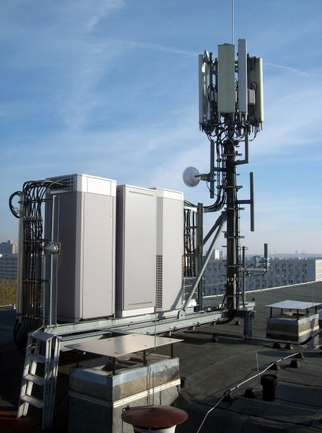 School networks are one of the most important innovations in the modern era of education. They have boosted achievement and graduation rates and expanded quality options in communities that most need them. This article examines the internet installation in schools with reference to Kenya. Internet is a globally connected network system that uses internet protocol (IP) to transmit data via various types of media. Internet is a network of global exchanges including private, public, business, academic and government networks connected by guided, wireless and fiber-optic technologies.
School networks are one of the most important innovations in the modern era of education. They have boosted achievement and graduation rates and expanded quality options in communities that most need them. This article examines the internet installation in schools with reference to Kenya. Internet is a globally connected network system that uses internet protocol (IP) to transmit data via various types of media. Internet is a network of global exchanges including private, public, business, academic and government networks connected by guided, wireless and fiber-optic technologies.
Safaricom is a leading Internet Service provider in Kenya. Safaricom fiber was launched in Nairobi in 2015 and continues to expand its customer base across Kenya. Safaricom provides reliable and fast internet service can be accessible via wireless technology or digital subscriber line. It delivers consumers radically lower priced, high quality Internet. Safaricom Fiber also allows you to have fast, reliable and unlimited internet access from the comfort of your home. Safaricom Home Fiber is a service that allows you to have fast, reliable and unlimited internet access not only in homes, but also in schools.
In 2014, KENET launched the Schools Connectivity Initiative (SCI) to coordinate the various commercial, educational and government organizations that were interested and willing to provide Internet access and promote the use of ICT in Kenyan schools. The general objective of SCI is to improve the quality of education by transforming teaching, learning and administration of schools in Kenya by leveraging ICTs. The challenge has always been the cost of equipping educational institutions with ICT and providing affordable Internet access, particularly for the large number of schools in the country. For example, Kenya had a total 8,747 secondary schools and 29,460 primary schools in 2014 according Economic Survey 2015. The secondary schools had a total enrolment of 2.3 million students in the year 2014. The cost of providing Internet access to all the schools in Kenya would therefore be very high and it is unlikely any one operator could provide it. The SCI intends to create a platform through which public and private sectors could partner in an effort to provide scalable and sustainable ICT and Internet access to schools.
Internet is a resource which can serve as a platform for information retrieval among students. It can be used to respond to students and other people questions in real time. This therefore makes Internet important in effective teaching and learning process in schools.
Internet has been crucial in the evolution of our education system in various ways. Teachers can use the internet as a modern tool for education. Stakeholders in Education should provide the infrastructure that teachers and students can use to get benefits of technology in education.
Internet is also used by teachers and pupils in examining the links between public subsides, in classrooms and in educational performance.
The development of Internet technologies has raised the education level in all countries and it has changed the way students are being taught in schools. This is why it is very important for the stakeholders in education to have a framework for provision of internet in learning institutions.
For more information about installing Internet in schools, kindly contact SNK/Marxtech Team via 0202319748.
To have a direct link with the Lead Internet Provider Team, you may visit:

 Marxtech Digital Solutions
Marxtech Digital Solutions